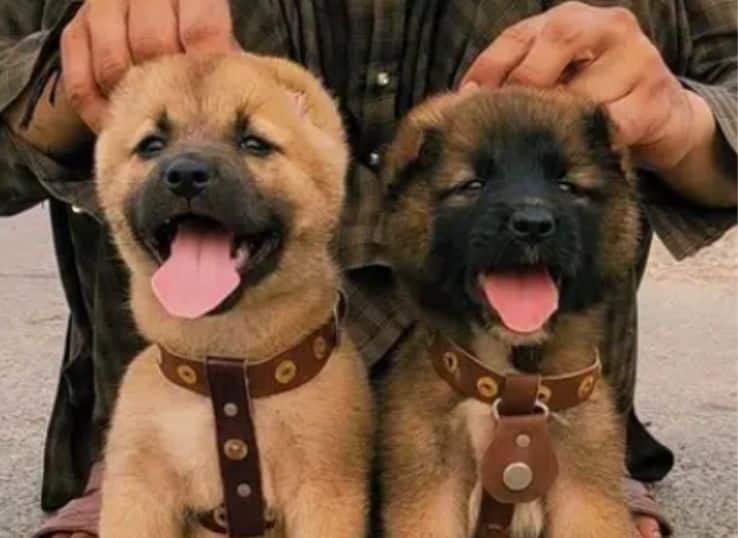Veterinary courses in Pakistan
Last Updated on February 9, 2023 by Dr. Ali Shahid

Pakistan is yet on the list of developing countries, but it has phenomenal growth in the agriculture and dairy sector. The growth in this sector is an indicator of our hardworking professionals. These professionals learn and improve their skills through various veterinary courses in Pakistan.
Currently, around 21 public and private sector universities are producing veterinary graduates and professionals every year. All these professionals in veterinary medicine and allied veterinary science led to the enhancement of this sector through their polished skills.
Due to the abilities and hard work of these professionals, we expect the agricultural GDP in Pakistan to reach 9143105.00 PKR Million by the end of 2022.
Professional Veterinary Courses and Diplomas
There is a long list of veterinary courses in Pakistan. The universities offer these courses of different durations to enhance the skills of local farmers. They also produce skilled professionals to aid these farmers in increasing the growth potential of the dairy and livestock sector in Pakistan.
If you are looking for veterinary courses in Pakistan, we have developed this list for you. The details of various courses offered by the Public and Private sector universities of Pakistan are as follows.
Doctor of Veterinary Medicine (Duration 5 years)
Many medical students in Pakistan aspire to be veterinarians. To become a veterinarian, you must complete a 5-year degree program known as DVM (Doctor of Veterinary Medicine). The vets are the Doctors of Animals.
Many students want to do this because DVM is a broad career path that it does not end. Many students choose this profession because a veterinarian can earn more money than an MBBS doctor. Animals pique the interest of most medical students, so they can opt for DVM as a career path.
Subjects
The DVM is a very vast profession, having a long list of subjects. These doctors study a hell lot to gain knowledge about all the local and exotic species of animals. It is one of the most difficult and tiresome career paths in the world.
The veterinarians in Pakistan study a lot of subjects during their undergraduate time. The total credit hours of this degree are 207. The list of these subjects includes:
- Functional English
- Islamic Studies/Ethics
- Pakistan Studies
- Veterinary Anatomy
- Veterinary Histology and Embryology
- Veterinary Physiology
- Biochemistry
- Livestock production
- Poultry production
- Veterinary Microbiology and Virology
- Animal Welfare and Ethics
- Pharmacology
- Chemotherapy and Toxicology
- Veterinary Pathology
- Veterinary Parasitology
- Anthropology
- Veterinary Immunology
- Molecular Biology
- Bio-statistics
- Mathematics
- Livestock Extension Education
- Livestock Economics and Business Management
- Zoonoses and Food Safety
- Introduction to Meat Processing Technologies
- Veterinary Reproductive Physiology
- Veterinary Medicine
- Anesthesiology and Intensive Care
- Veterinary Clinical Pathology
- Veterinary Epidemiology and Public Health
- Poultry Pathology
- Obstetrics and Genital Diseases
- Lab and Zoo Animal Management
- Diagnostic Imaging
- Small and large animal surgery
- Reproductive Biotechnology
- Animal Breeding and Genetics
- Fisheries and Aquaculture
- Principles of Animal Nutrition
- Beef and Mutton Production
- Livestock Feed Resources and Forage Conservation
- Principles of Dairy Production
- Meat Inspection and Necropsy Practice
Specialties
They divided the study scheme of DVM in Pakistan into 5 years. There are 10 semesters, and each semester has its weightage. The courses are divided accordingly. The semester-wise course distribution is as follows.
SEMESTER ONE
- Veterinary Anatomy – I
- General Veterinary Histology
- Veterinary Physiology-I
- Biochemistry
- Fundamentals of Livestock Production
- English- I (Functional English)
SEMESTER TWO
- Veterinary Anatomy-II
- Systemic Veterinary Histology and Embryology
- Introduction to Poultry Production
- Veterinary Physiology-II
- General Veterinary Microbiology
- Animal Welfare and Ethics
- English-II (Communication Skills)
- Islamic Studies/Ethics
SEMESTER THREE
- General and Systemic Pharmacology
- General Veterinary Pathology
- General Veterinary Parasitology and Protozoology
- Anthropology
- Veterinary Immunology
- Molecular Biology
- Bio-statistics
- Livestock Extension Education
SEMESTER FOUR
- Veterinary Chemotherapy and Toxicology
- Systemic Veterinary Pathology
- Veterinary Helminthology
- Veterinary Bacteriology and Mycology
- Mathematics
- Livestock Economics and Business Management
- Zoonoses and Food Safety
- Introduction to Meat Processing Technologies
SEMESTER FIVE
- Veterinary Reproductive Physiology
- General and Systemic Veterinary Medicine
- Anesthesiology and Intensive Care
- Veterinary Clinical Pathology
- Veterinary Entomology and Acarology
- Veterinary Virology
- Veterinary Epidemiology and Public Health
- Pakistan Studies
SEMESTER SIX
- Medicine Clinic-I
- Surgery Clinic–I
- Theriogenology Clinic–I
- Poultry Pathology
- Obstetrics and Genital Diseases
- Veterinary Preventive Medicine-I
- Lab and Zoo Animal Management
- Small Animal Surgery
- Diagnostic Imaging
SEMESTER SEVEN
- Reproductive Biotechnology
- Theriogenology Clinic–II
- Surgery Clinic–II
- Medicine Clinic-II
- Veterinary Preventive Medicine-II
- Commercial Poultry Production
- Large Animal Surgery and Shoeing
- Animal Breeding and Genetics–I
- Fisheries and Aquaculture
- Principles of Animal Nutrition
SEMESTER EIGHT
- Medicine Clinic III
- Surgery Clinic III
- Theriogenology Clinic III
- Beef and Mutton Production
- Animal Breeding and Genetics – II
- Breeder and Hatchery Management
- Livestock Feed Resources and Forage Conservation
SEMESTER NINE
- Medicine Clinic-IV
- Surgery Clinic–IV
- Theriogenology Clinic–IV
- Meat Inspection and Necropsy Practice
- Dairy Technology
- Principles of Dairy Production
- Poultry Nutrition and Feed Technology
Universities offering this course
Around 20 universities are offering the degree of Doctor of Veterinary Medicine. These universities include both public and private sector universities. The list of these universities is as follows.
- The University of Animal Sciences Lahore (UVAS)
- College of Veterinary and Animal Sciences (CVAS Jhang)
- The University of Veterinary and Animal Sciences (Ravi Campus Pattoki)
- Cholistan University of Veterinary & Animal Sciences (CUVAS)
- University of Agriculture Faisalabad (UAF)
- PMAS (Pir Meher Ali Shah) Arid Agriculture University Rawalpindi
- Bahauddin Zakariya University (BZU)
- Riphah International University
- Riphah College of Veterinary Sciences
- The Islamia University of Bahawalpur
- Gomal University
- The Lasbela University of Agriculture, Water, And Marine Sciences, Uthal
- Abdul Wali Khan University, Mardan
- University of The Poonch, Rawal Kot
- The Shaheed Benazir Bhutto International University of Veterinary and Animal Sciences
- Sindh Agriculture University
- Mirpur University of Science & Technology, Bhimber Campus
- Khan Bahadur Chaudhary Mushtaq Ahmad College of Veterinary and Animal Sciences
- Khyber Institute of Veterinary Sciences
VA Diploma
You can also do veterinary assistant diplomas for two if you want to get beginner knowledge about veterinary practice.

Dr. Ali Shahid is a veterinarian by profession and CEO at provets. He loves to treat animals and has great expertise in veterinary products. Our aim is to provide the best information related to your animal health.






